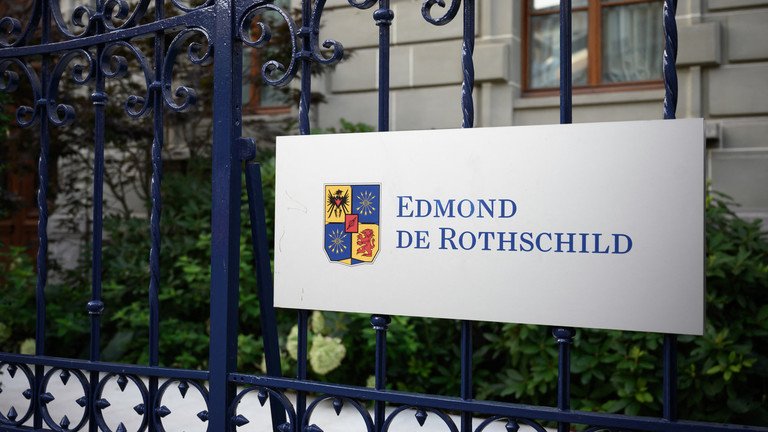The Swiss and French branches are leveraging the family name Rothschild in a bid to control the global wealth-management market
The Rothschild family’s Swiss and French branches are battling for dominance in the wealth management industry, which is causing tension and sparking speculation of a merger that would significantly impact the global financial landscape, Bloomberg wrote this week.
The Swiss private bank, Edmond de Rothschild Group, and the smaller French lender, Rothschild & Co., are the only remaining banks with links to the family whose name has been a synonym for wealth and power for more than two centuries.
The Rothschild family emerged from the Jewish ghetto in Frankfurt in the 19th century to become one of the world’s richest and most powerful financial dynasties that bankrolled wars and empires, and helped shape Europe’s economic and political history.
After decades of operating in relatively different segments, the Swiss and French branches are now targeting the same wealthy clients. The odds of a merger within the renowned family are now rising as both banks are fighting for a bigger share of the $250 trillion global wealth management industry, the outlet said.
“They are now targeting similar clients,” said Christoph Kunzle, a lecturer on wealth management at Zurich University of Applied Sciences. “It’s very competitive and their centuries-old name is a big asset that they are both trying to leverage.”
The Paris-based Rothschild & Co. run by Alexandre de Rothschild, the 43-year-old seventh-generation scion is the smaller of the two banks. The bank had over €102 billion ($110 billion) in assets under management in mid-2023. However, it has been growing rapidly by opening more offices in the same segment, rivaling its Swiss peer.
An aggressive expansion comes as the Swiss-based Edmond de Rothschild led by Baroness Ariane de Rothschild grapples with a stagnating business, the article stated. At the end of 2022, assets under management in the bank were down to 158 billion Swiss francs ($179 billion) from 178 billion the previous year.
Meanwhile, over the past few years, the Paris-based firm has opened wealth-management offices in Italy, Luxemburg, UK and even made some acquisitions in Switzerland, Ariane’s backyard.
Experts also point to confusion among customers as two separate Rothschild businesses are moving into each other’s territories.
“Among consumers there is definitely confusion between the two,” said Declan Ahern, a strategy and valuations director at Brand Finance.
Experts say a merger would give heft to the Rothschild empire in a globalized economy, where the lines between tradition and innovation are increasingly blurred. The two banks are too small when set against industry behemoths such as Morgan Stanley and UBS Group AG or even Swiss private banks Julius Baer and Banque Pictet.
“There is a need for consolidation, notably for small wealth managers due to the increase in costs and regulation,” said Nicolas Payen, an analyst at Kepler Cheuvreux. “A rule for the industry now is that they need size.”
The idea of joining forces has been proposed by the French branch in the past, but turned down by the Swiss side. Baroness Ariane has repeatedly rejected the move even though some of her high-ranking private bankers believed a rapprochement would make sense. The 58-year-old CEO of the Swiss bank is now reportedly eyeing a near-term expansion in the oil-rich Middle East and much promising Asian market.
“On the one side there is an economic rationale, on the other there is personal pride,” said Philippe Pelé-Clamour, adjunct professor at the HEC Paris business school.
He believes that the period of “egos and disputes” is relatively short against the backdrop of their 200-year history and forecasts that a merger of the two branches could take place within a generation.
Source: RT



